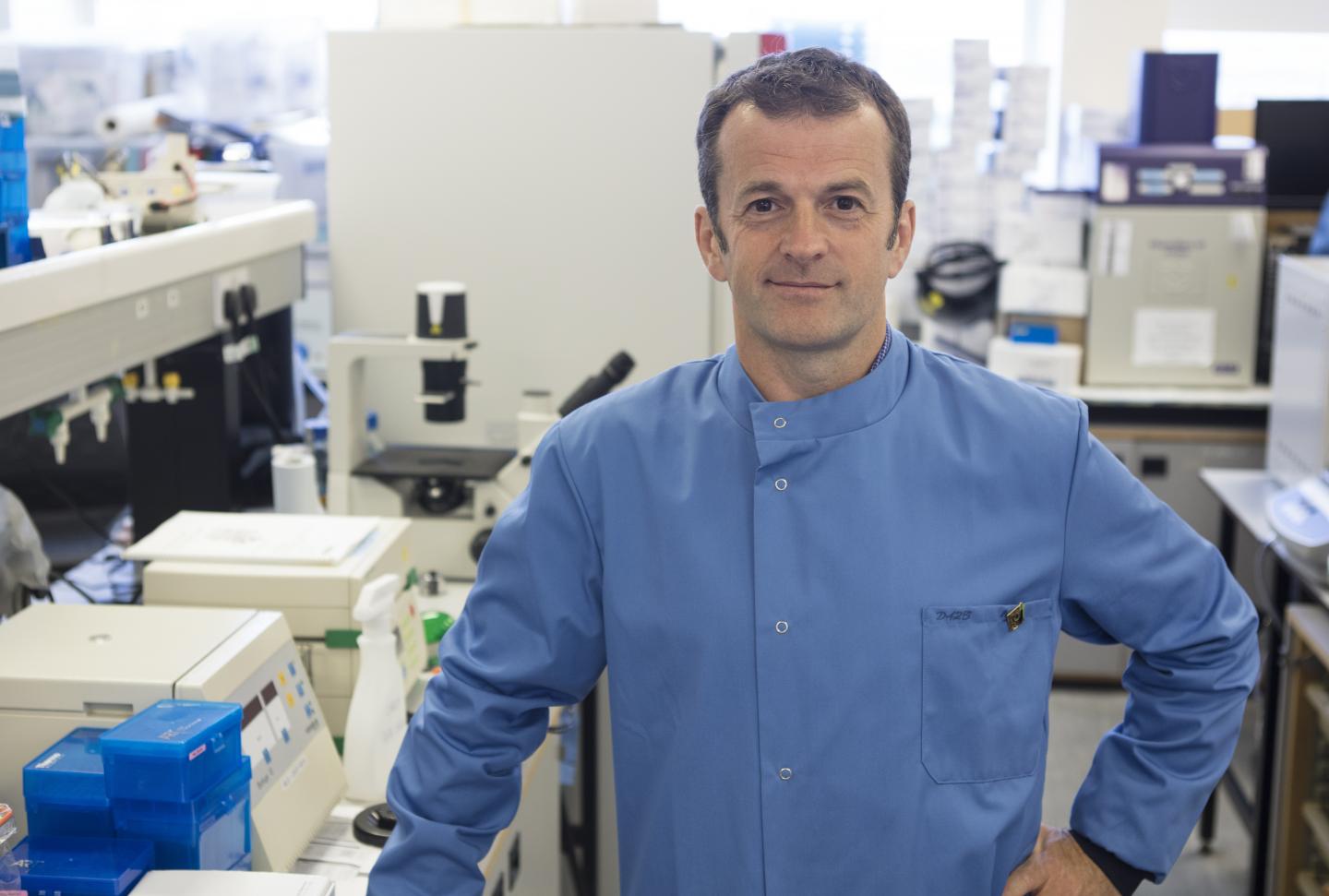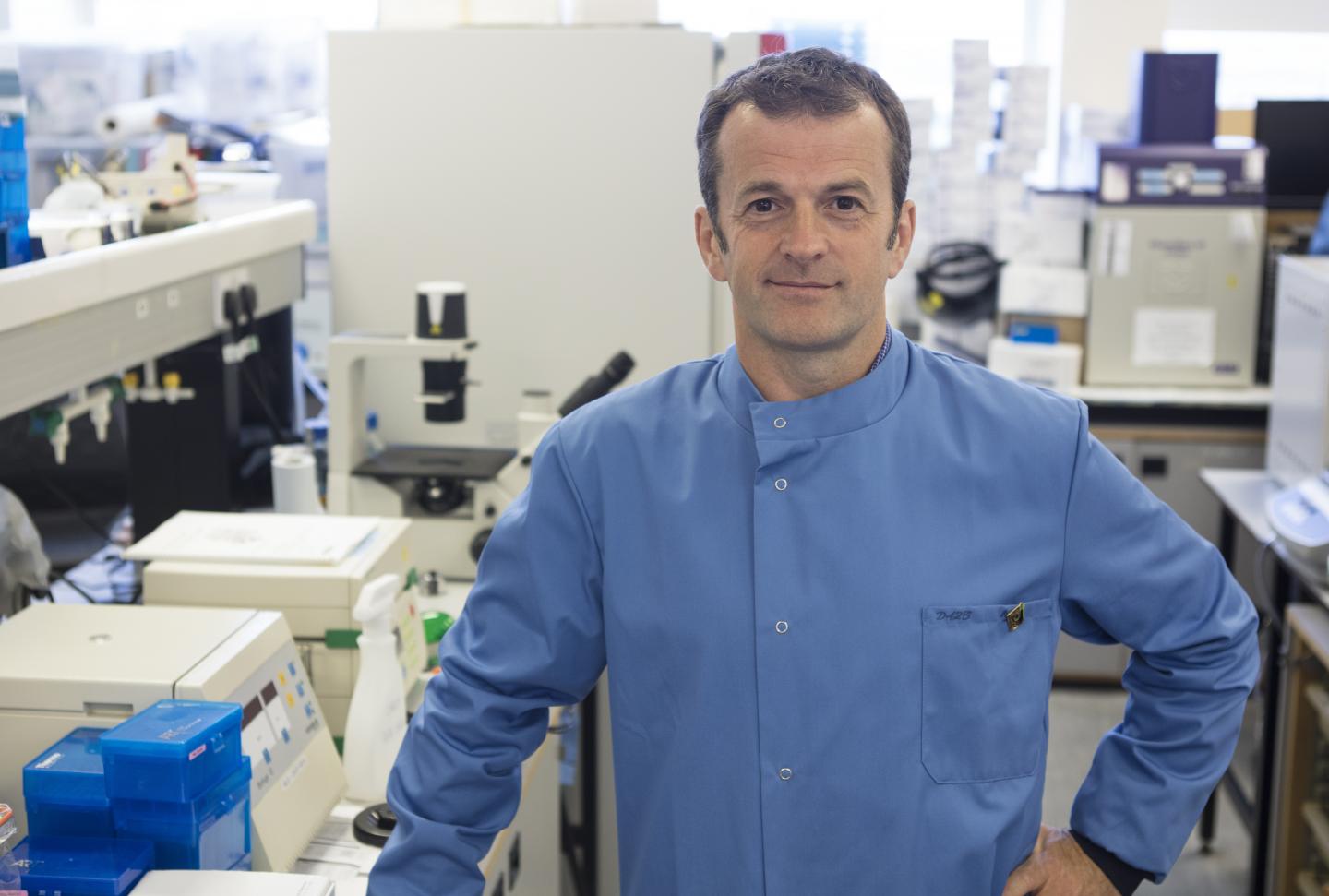
Credit: University of Plymouth
Drug-resistant infections are set to kill more people than cancer by 2050. Now a new University of Plymouth spinout company has been established to help tackle the problem – by developing new antibiotics and bringing them to market.
Launched in collaboration with University intellectual property partners, Frontier IP, Amprologix will develop and commercialise the work of Professor Mathew Upton, Professor in Medical Microbiology at the University's Institute of Translational and Stratified Medicine (ITSMed).
A UK government review in 2015 estimated that by 2050, the global cost of antibiotic resistance will rise to US$100 trillion and drug resistant infections will cause 10 million deaths a year, eclipsing the current toll from cancer and diabetes combined.
In the UK alone, the government estimates there are currently 5,000 deaths each year because antibiotics no longer work for some infections. https://www.gov.uk/government/news/30-million-of-funding-to-tackle-antimicrobial-resistance
The first product from the company is expected to be a cream containing epidermicin, one of the new antibiotics being developed to combat infections caused by antibiotic-resistant bacteria. Epidermicin can rapidly kill harmful bacteria including MRSA (methicillin resistant Staphylococcus aureus), Streptococcus and Enterococcus at very low doses, even if they are resistant to other antibiotics.
No new classes of antibiotics have been introduced into clinical use for the past 30 years, and the company is aiming to meet a growing need for new antibiotics as harmful microbes become increasingly drug resistant.
Amprologix has already secured industry involvement through a partnership with world-leading biotechnology and synthetic biology company Ingenza.
The new company is focused on four areas:
- Developing epidermicin for commercial use
- Discovering additional sources for new classes of antibiotics
- Using Artificial Intelligence to improve antibiotic properties, working with Ingenza, IBM and the National Physical Laboratory
- Developing efficient techniques to manufacture antibiotics at scale in partnership with Ingenza
In a relevant infection model, a single dose of epidermicin was as effective as six doses of the current standard of care. The antibiotic was initially recovered from a skin bacterium named Staphylococcus epidermidis, but can now be produced in a microbe suitable for industrial scale-up, using synthetic biology methods developed by Ingenza, which has a stake in the new business.
Professor Upton initially developed the patented technology working closely with UMI3 Ltd at The University of Manchester, which also takes a stake in the new business.
Professor Mathew Upton, chief scientific officer of Amprologix and part of the University of Plymouth School of Biomedical Sciences, said: "It is very exciting to form a new company to take forwards our portfolio of novel antimicrobial compounds. Epidermicin, our lead candidate antibiotic, has excellent potential for treating and preventing serious, drug resistant infections. With our current team, the company will be the ideal vehicle to take epidermicin to the clinic.
"The World Health Organisation warned in February this year that 'antibiotic resistance is one of the biggest threats to global health, food security, and development today', so to have this company established is the next step to helping tackle the problem."
Neil Crabb, chief executive of Frontier IP, said: "We are delighted to work with Amprologix to commercialise these potentially life-saving antibiotics, and with a leading industrial partner in the area. It is further sign our business model is gaining traction with universities and industry alike."
Dr Ian Fotheringham, managing director of Ingenza, said: "This unique partnership fully exploits the synergy of Ingenza's versatile bio-manufacturing technologies and Amprologix's lead in discovering exciting new antimicrobial classes, spearheaded by Dr Upton's innovative research."
###
Media Contact
Amy McSweeny
[email protected]
07-761-583-335
@PlymUni
http://www.plymouth.ac.uk
Original Source
https://www.plymouth.ac.uk/news/university-spinout-company-to-develop-new-antibiotics





